September 05, 2024
CDR Monthly Recap - August 2024

We are back with another edition of the CDR Monthly Recap, a monthly round-up of some of the top news, developments, and market updates from the world of durable carbon removal. August was slow in purchases with only 4.3Kt, but fast for CDR projects and facilities, from the launch of the world’s first DACCS innovation center to a filed permit for the world’s largest DACCS plant. Other developments, such as federal funding opportunities, new protocols and partnerships, and a host of events, continue to drive momentum for the industry even as we take a Summer pause from order volume.
Read on to learn more below!
Want to know more about durable CDR? Join over 400 companies and sign up for free access to the CDR.fyi Portal to gain market insights, showcase your company’s profile and progress, and get on the CDR Map!
Deals and Partnerships
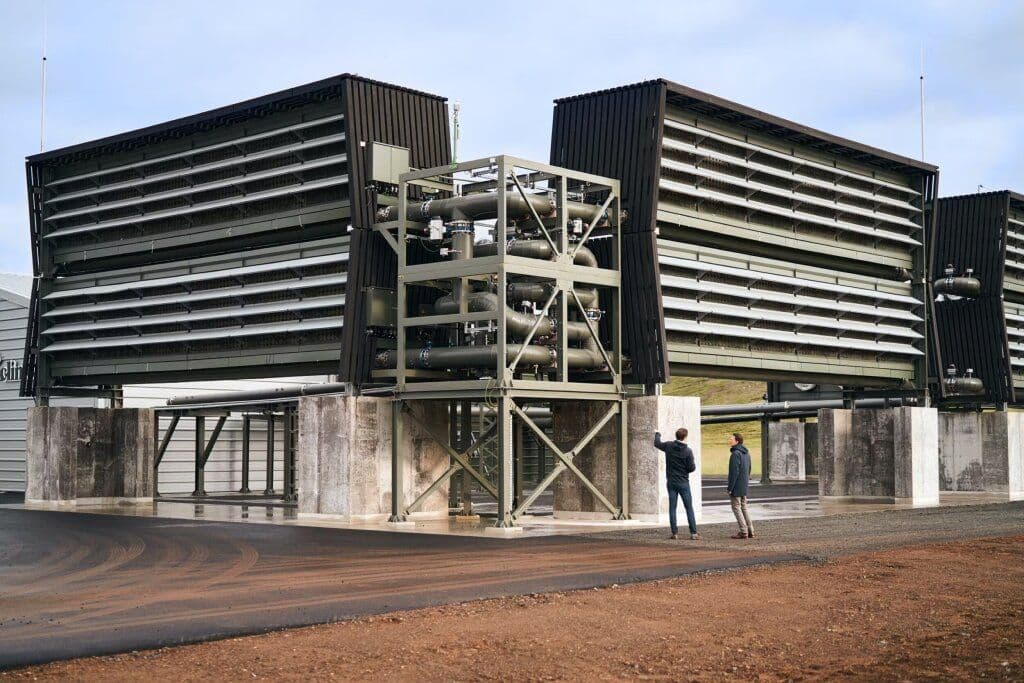
[Image source: Climeworks]
Non-profit climate fund Terraset announced its first purchase of carbon removal credits from direct air carbon capture and storage (DACCS) company Climeworks. The volume and pricing of the agreement were not disclosed.
Isometric announced the issuance of 107.21 carbon removal credits from Charm Industrial to JPMorgan Chase, Shopify, and Stripe. The ex-post credits were certified under Isometric’s Bio-oil Geological Storage Protocol.
The SLB and Aker Carbon Capture joint venture announced a contract with Bioenergy with Carbon Capture and Storage (BECCS) company CO280 for the front-end engineering and design (FEED) of a carbon capture plant at a U.S. Gulf Coast pulp and paper mill, with a capacity to remove 800,000 tonnes of CO₂ annually.
Carbon rating agency BeZero Carbon partnered with EcoRegistry to expand its carbon credit ratings in emerging markets, including Latin America. This will provide EcoRegistry’s users access to ratings that assess the quality of carbon credits for listed projects.
Japanese companies Marubeni Corporation and Japan Petroleum Exploration Co. (JAPEX) signed a joint study agreement with Indonesian oil and gas company PT Pertamina, to assess the feasibility of BECCS at a pulp mill and nearby oil field in South Sumatra, Indonesia.
Projects
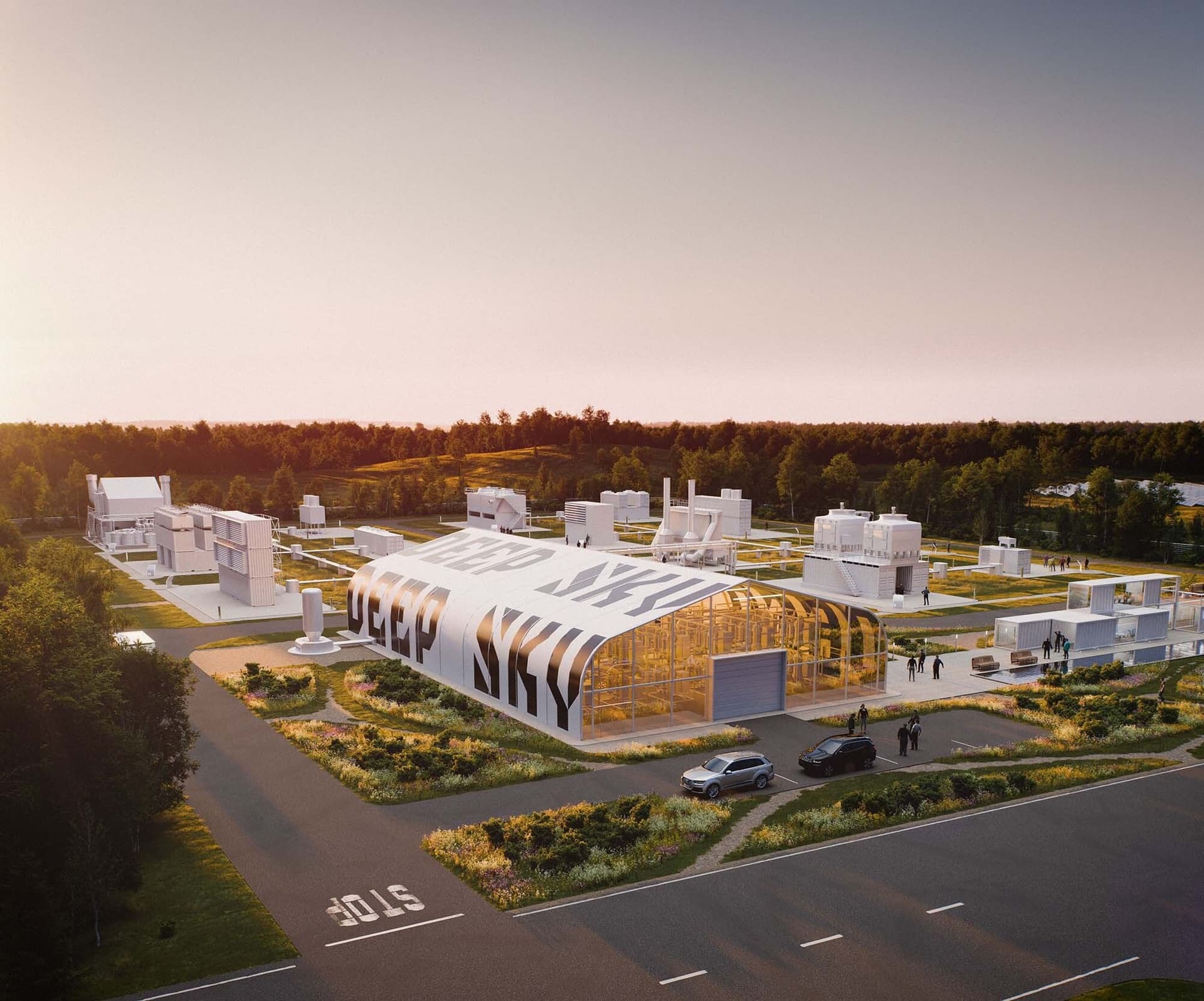
[Image source: Deep Sky]
Deep Sky, a Montreal-based CDR project developer, announced the launch of Deep Sky Labs, the world’s first DACCS innovation center, in Innisfail, Alberta, Canada. The facility will be powered by 100% solar energy and will have the capacity to capture 30,000 tonnes of CO₂ over 10 years.
Spiritus, a New Mexico, US-based DACCS company, filed a Class VI permit application with the Wyoming Department of Environmental Quality for its Orchard One project. It aims to be the world's largest DACCS facility, targeting the removal of 2 million tonnes of CO₂ annually by 2026, at a fraction of current industry costs.
RepAir Carbon Capture and C-Questra announced plans to develop the EU's first onshore CDR project in France, featuring an energy-efficient DACCS technology intended to reduce energy use by 70%. The project aims to remove 100,000 tonnes of CO₂ annually by 2030, with the potential to reach megatonne levels by 2035.
DAC company Heirloom and its partners started exploring the feasibility of DAC Hubs in Illinois and Florida. The company had earlier been selected by the US Department of Energy (DOE) to build two new projects in Illinois and Florida, as part of the DAC Hubs program. Led by the University of Illinois at Urbana-Champaign, the company has announced plans to study the feasibility of both DAC Hubs.
Los Angeles-based DACCS company Avnos launched its new facility in Bridgewater, New Jersey. The facility will serve as the testing ground for the company’s Hybrid (HDAC) system – which requires no water or heat from its environment and can yield 5 tonnes of liquid distilled water for every tonne of CO₂ captured.
Irish DACCS company NEG8 Carbon announced significant upgrades to its technology that enhances efficiency and effectiveness by increasing CO₂ uptake by 50%, reducing energy consumption by over 20%, and reducing the sorbent needed by 80%.
Heimdal, a pioneer in DAC technology, in collaboration with CapturePoint, launched its first DACCS facility, Project Bantam, in Shidler, Oklahoma. With a capacity to capture over 5,000 tonnes of CO₂ annually, it expects to be the largest operational DAC plant in the U.S. and the second largest globally.
Irish DACCS company Carbon Collect launched the 2nd generation of its MechanicalTree™ technology, announcing that it is on track to achieving DACCS below $200 per tonne by 2030.
CarbonBox, China’s homegrown DACCS facility, passed the reliability tests of its technology, with each module capable of capturing over 100 tonnes of CO₂ annually and producing a 99% pure CO₂ product. Developed by Shanghai Jiao Tong University and China Energy Engineering Corporation, CarbonBox has an annual capture capacity of 600 tonnes.
Germany-based Kumo launched its platform for carbon project developers to model financing needs and connect with potential lenders. Kumo is also set to announce a major participant in its first biochar bond and is collaborating with Biochar Zero to onboard suitable projects.
Financing
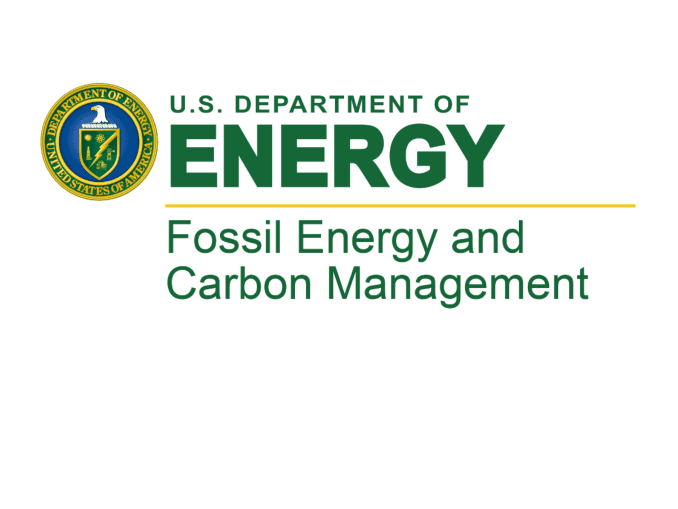
[Image source: US DOE]
The U.S. Department of Energy’s Office of Fossil Energy and Carbon Management (FECM) announced a new funding opportunity of $127.5 million in carbon capture, removal, and conversion test centers. Projects selected under this funding opportunity will support testing facilities that will further advance technologies to capture and convert CO₂ into products from utility and industrial sources or remove CO₂ from the atmosphere.
Public investment vehicle Canada Growth Fund (CGF) and Vancouver-based carbon capture and removal solutions provider Svante announced a financing commitment of $100 million to accelerate the development and construction of Svante’s commercial carbon capture and removal projects in Canada and the US.
The U.S. DOE announced a new program to invest $52.5 million in DAC technologies. Supported by President Biden's Investing in America agenda, the American-Made Commercial Direct Air Capture Pilot Prize will support the design, development, and deployment of DAC pilot projects, with $52.5 million made available through 4 different phases.
Climate Impact Partners launched a new program to enable companies of all sizes to fund innovative CDR technologies, accelerating the deployment of high-permanence solutions.
Canadian strategic investment firm InBC announced its investment in Arca, a CDR company transforming CO₂ from the atmosphere into rocks for permanent storage. The investment will help Arca grow its team in British Columbia and build strategic partnerships with global producers of critical metals.
CEEZER announced the graduation of its new cohort of the CEEZER Carbon Coalition accelerator program. The companies selected in the program include - AirSmat, Heimdal, ZeroEx, PRONOE, SeaO2, Silica, and RECOAL.
Enhanced weathering startup Eion is set to receive investment from Exelon’s Climate Change Investment Initiative (2c2i). Exelon, the largest utility company in the U.S., launched 2c2i in 2019 to align its social and environmental goals with venture capital investment strategies.
Policy and Research
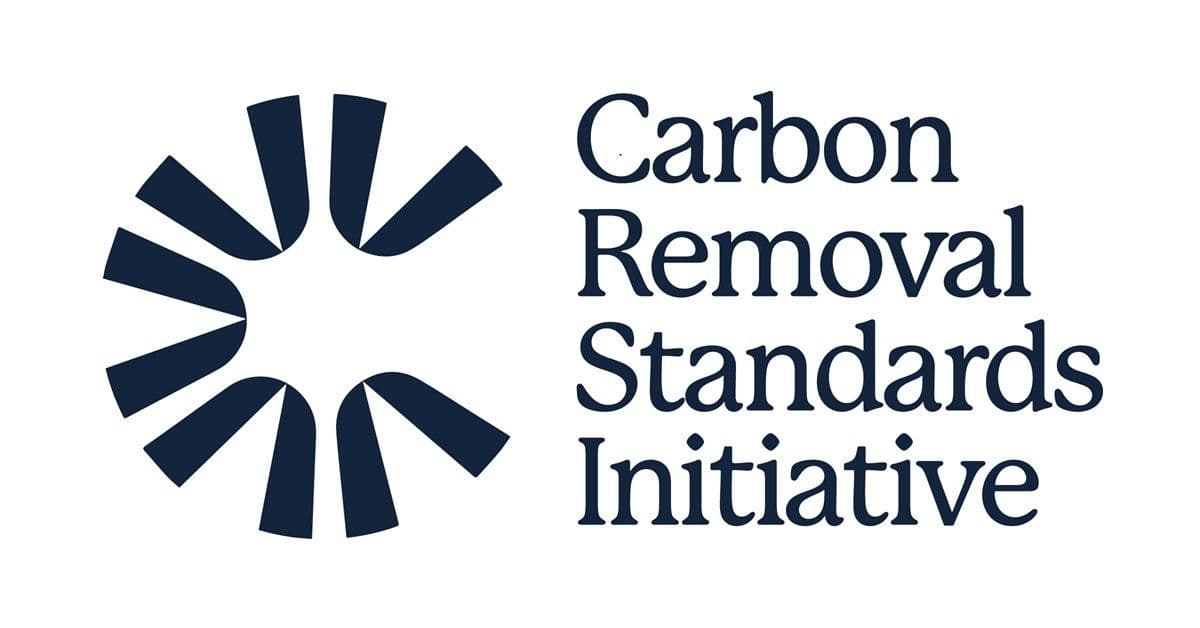
[Image source: CRSI]
Carbon Removal Standards Initiative (CRSI) was officially launched by Anu Khan (former science and innovation director, Carbon180). The independent non-profit organization aims to provide technical assistance to NGOs and policymakers to develop and implement CDR policies, with a unique focus on quantification standards.
Carbon Standards International (CSI)’s Global C-Sink Registry, a platform that develops standards, strategies, and solutions for agriculture and industry, received conditional endorsement from accreditation program ICROA.
CDR registry Puro.earth announced that it has issued the first Terrestrial Storage of Biomass CORCs to Woodcache PBC. Woodcache’s first full-scale CDR project, located in Southern Colorado, aims to contribute 3,000 tonnes of removal in 2024 and has plans to remove 1 gigatonne of CO₂ per year by the mid-2030s.
Isometric launched a new digital monitoring, reporting and verification (dMRV) platform to help suppliers. The new tool streamlines verification by enabling quick carbon accounting, standardized evidence submission, and automated error detection for higher data quality.
To help CDR suppliers save more time to work on their solutions, advance market commitment Frontier made its offtake agreement template public for the first time, in a new announcement. It also includes a walkthrough across the timeline of a CDR project, key contract terms, and the offtake template itself.
Carbon rating agency BeZero Carbon published its highest-ever rating, awarding the Orca Direct Air Capture with Carbon Storage (DACCS) project, owned and operated Swiss DAC company Climeworks, a ‘AAA’ rating, signifying the highest likelihood of removing one tonne of CO₂e.
Captura, a Direct Ocean Capture (DOC) company, released a white paper detailing the costs of DOC and outlining its technology roadmap. The paper also highlights advancements in electrodialysis, gas extraction, and energy efficiency to reduce costs.
Isometric released two modules for public consultation on carbon dioxide storage via mineralization. Developed with input from over 200 experts, the modules cover storage in closed-engineered systems and carbonated materials monitoring, respectively.
The U.S. Department of Energy’s Office of Fossil Energy and Carbon Management (FECM) launched the Responsible Carbon Management Initiative (RCMI) pilot with an aim to encourage and recognize project developers prioritizing safety, environmental stewardship, and community engagement in carbon management.
New research from the University of Oxford Smith School of Enterprise and the Environment, led by Dr. Ben Caldecott, proposed a Carbon Removal Budget: a conceptual tool that can be used to estimate, allocate and manage the finite global potential of CDR.
Leaderboard Updates
After a huge July which saw over 600,000 tonnes of CDR sold, August saw a massive drop with only around 4000 tonnes of reported purchases.
Listed below is the August leaderboard for top suppliers:
Supplier Leaderboard
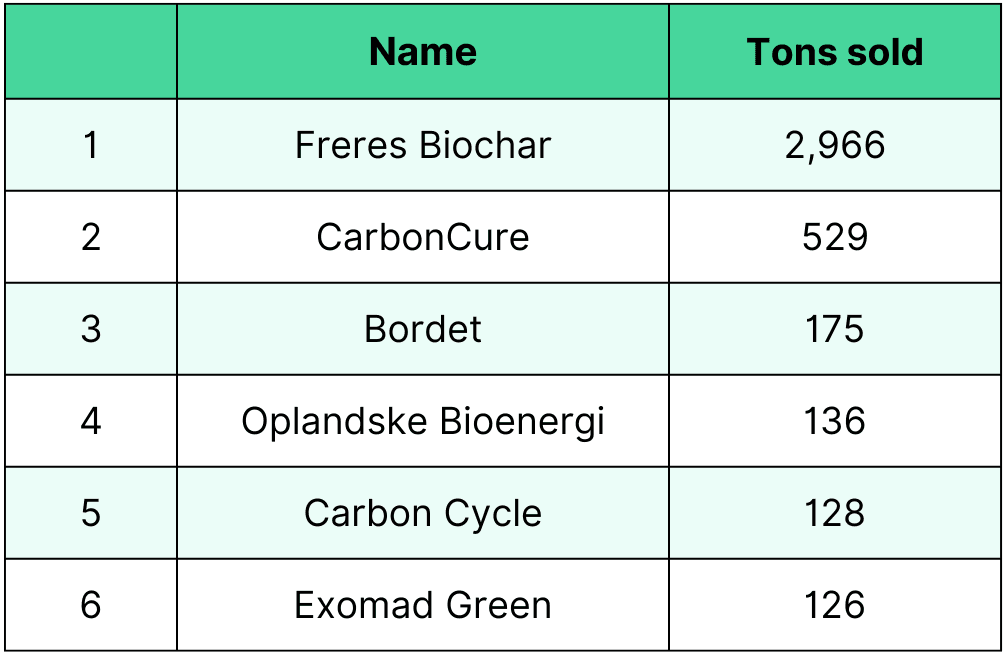
Events round-up - August 2024
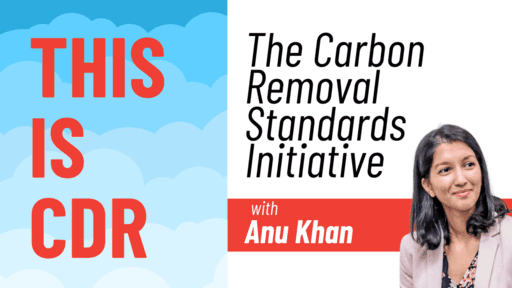
[Image source: OpenAir Collective]
The Open Air Collective’s Episode 101 of This Is CDR featured Anu Khan, discussing the idea behind the Carbon Removal Standards Initiative (CRSI), her newly launched independent organization on MRV and policy.
Klimate hosted a webinar with Luke Purdy, Wieden + Kennedy’s Director of Sustainability, discussing how agencies can tackle their emissions beyond just reducing, along with how they crafted their ideal carbon removal strategy.
The latest episode of “Scrubbing the Skies” by Wil Burns, Co-Director of the Institute for Responsible Carbon Removal, American University, hosted Sam Uden, Director, Climate and Energy Policy, Conservation Strategy Group to unpack the key elements of SB 308, and discuss how it could drive CDR deployment in both California and nationally.
The Biochar Malaysia Association International Conference 2024, organized by the International Biochar Initiative, was held in Selangor, Malaysia. The conference brought together biochar experts from across the world, covering a wide range of topics such as Biochar’s economic and social benefits, its role in climate change mitigation and adaptation, and its applications in agriculture, forestry, and other sectors.
Check out the CDR Events Calendar to stay updated with upcoming CDR events in September and beyond.
CDR.fyi Updates and Research
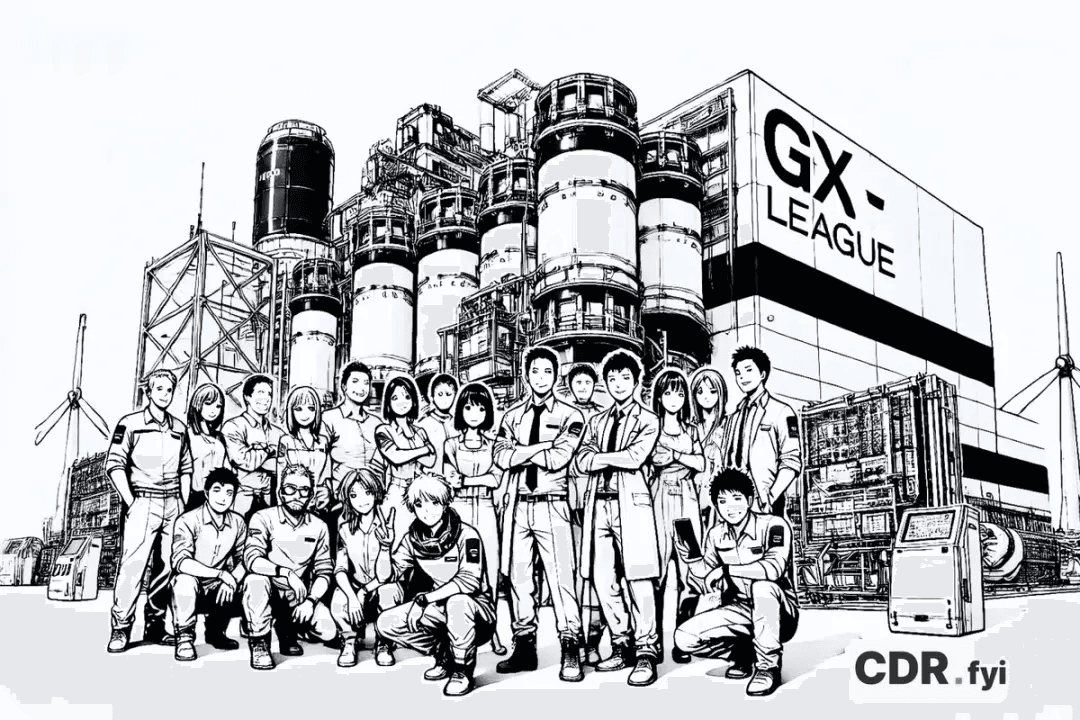
- Japan's GX-League and Carbon Removal in GX-ETS
Our biggest update in August was a detailed and comprehensive post, written by CDR.fyi’s Tank Chen, with data research provided by Anna Pasini, analyzing Japan’s CDR strategy. The article highlights how carbon removal is being integrated into Japan's broader climate initiative, the Green Transformation, and how participating companies in the GX-League may evolve to play important roles in the global development of CDR. The analysis also includes a comprehensive database of 700+ companies in the GX-League.
- Details on Sweden's BECCS Support - What will be the effect on climate?
CDR.fyi Co-founder Robert Höglund wrote an article going through the details of Sweden’s long-awaited reverse auction system for BECCS projects, which will allocate 36 billion SEK ($3.4B) for the program for delivery over 15 years. The article also discusses areas such as carbon capture cost, environmental concerns, and policy implications related to the program.
CDR Trivia Welcome to CDR Market Trivia! Even if you have read the recap until here, this might be a good opportunity to test your knowledge of what transpired in the durable CDR market in July. Delve into some captivating facts and insights you may have missed, even if you’re the most ardent follower of all things CDR.
In the last edition, which had 250 participants, the average score stood at 5.0/10, while only 1 participants got a perfect score. Click here to get started with the CDR Market Trivia!
Stay connected
Follow us on LinkedIn for This Week in CDR and CDR Soundbytes.
We'd love to hear from you! Reach out to us anytime with suggestions or comments at team@cdr.fyi.
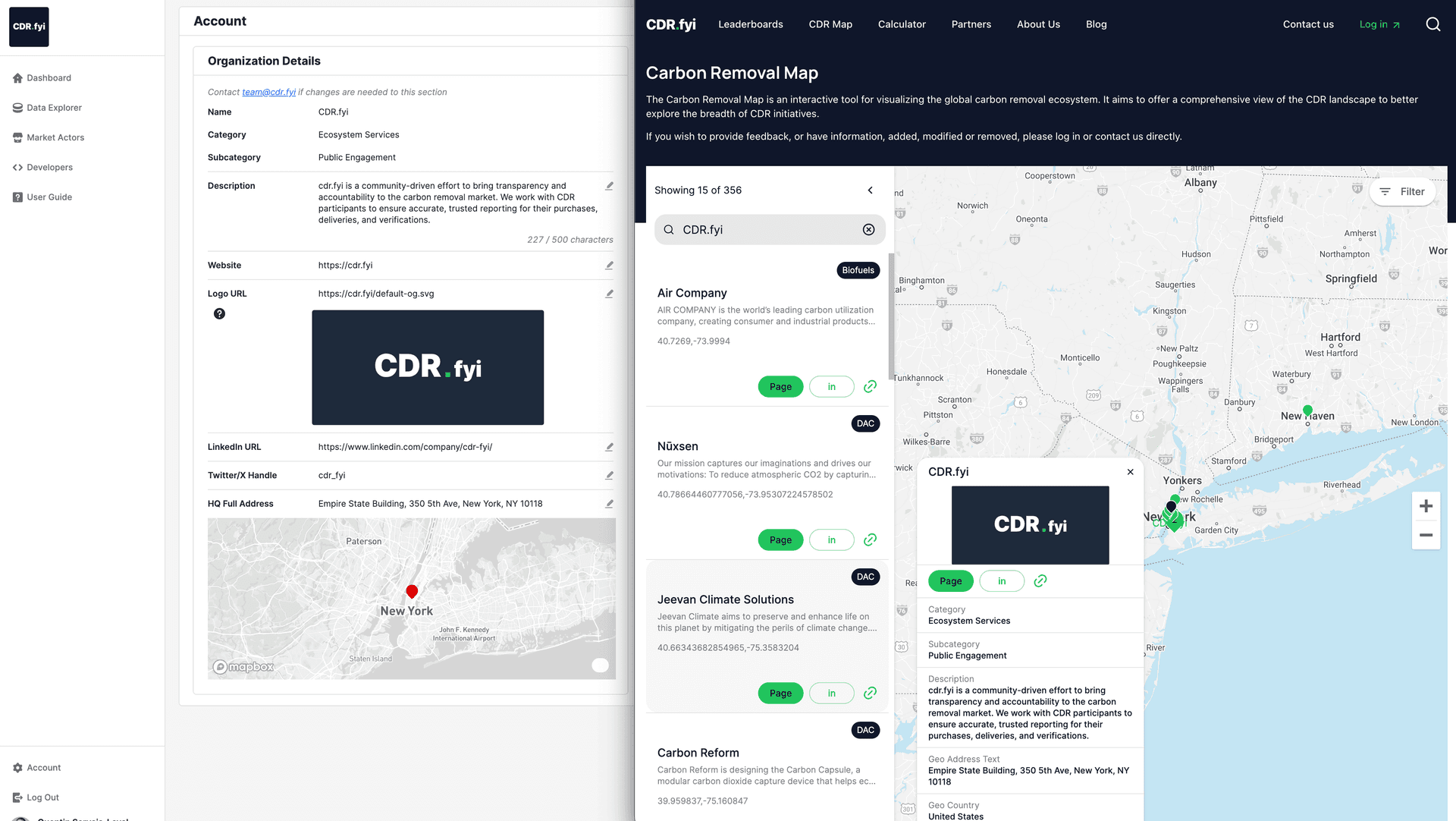
Join over 400 companies and sign up for free access to the CDR.fyi Portal to gain market insights, showcase your company’s profile and progress, and get on the CDR Map!